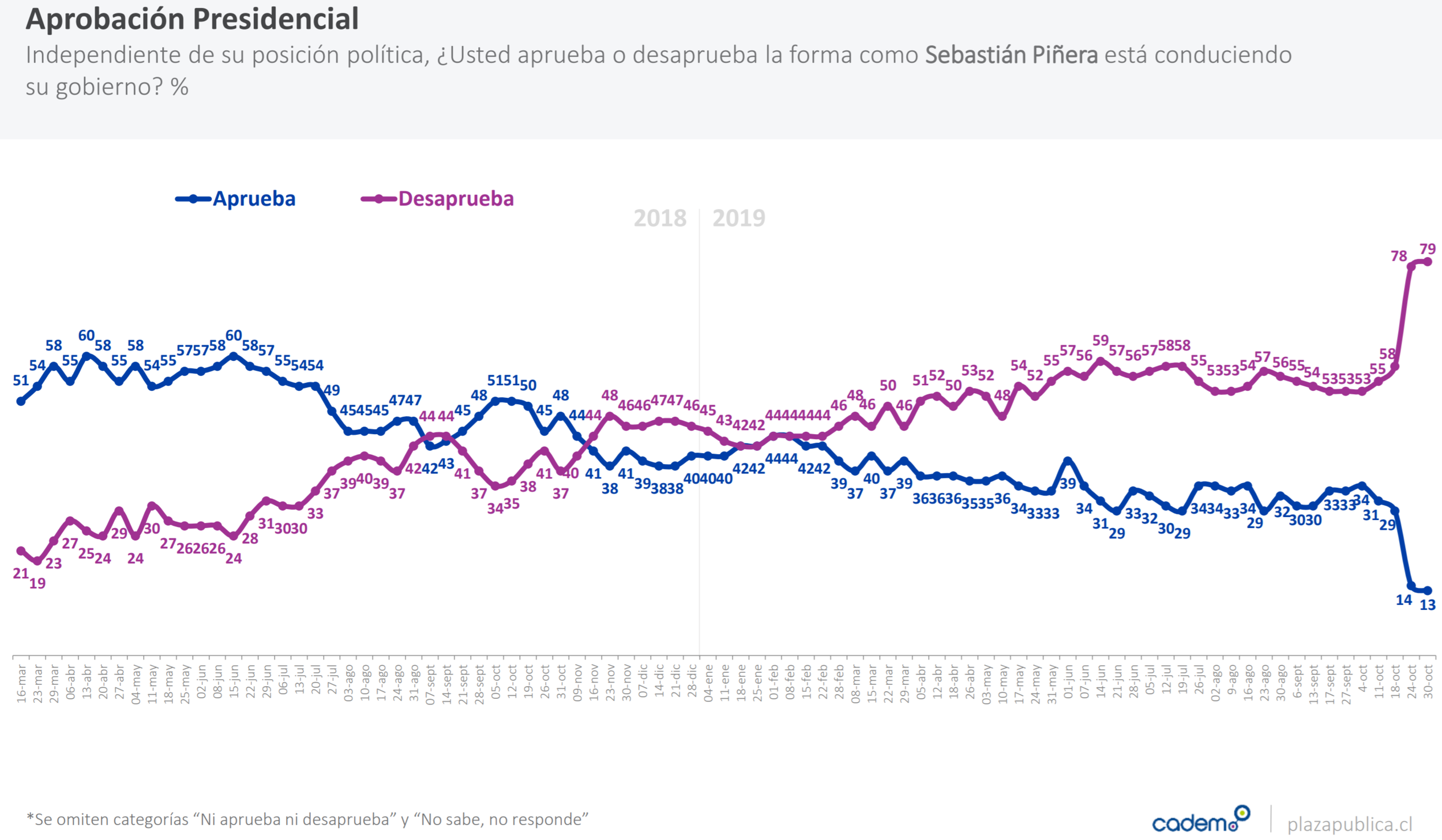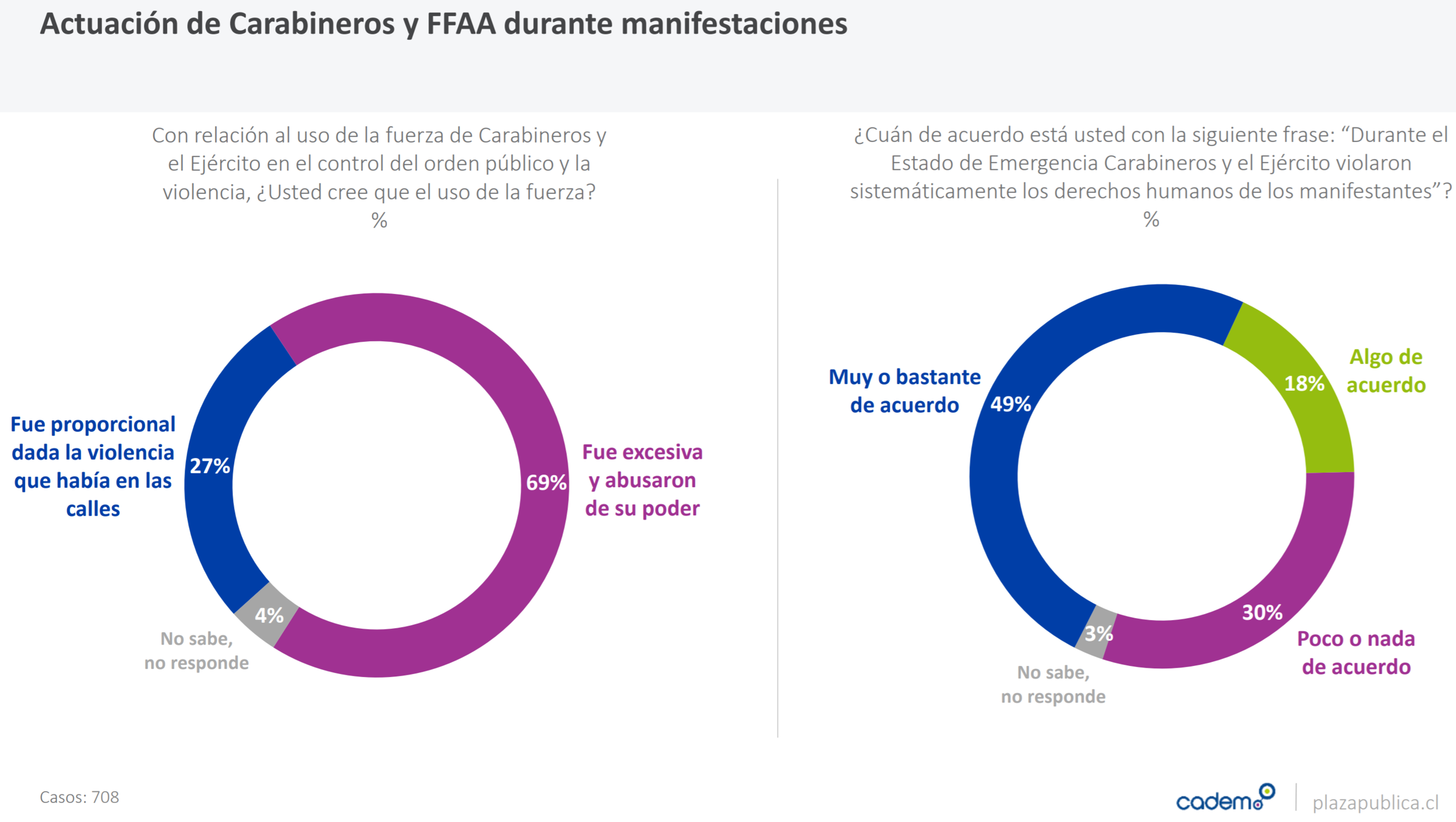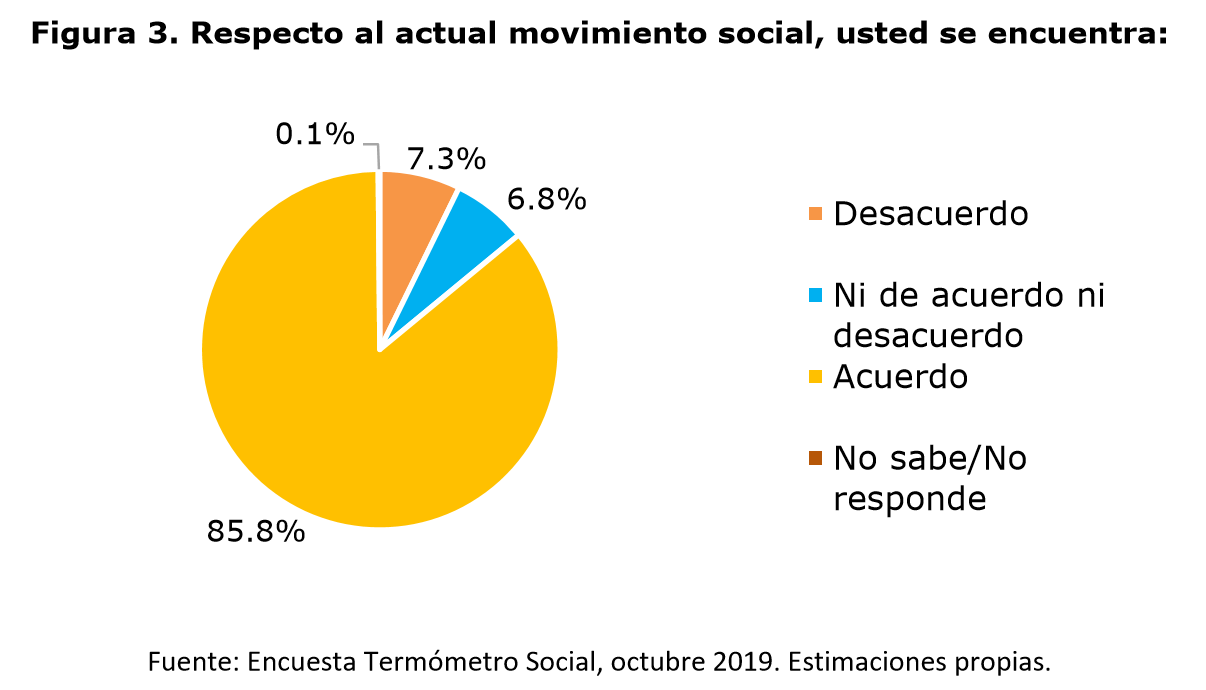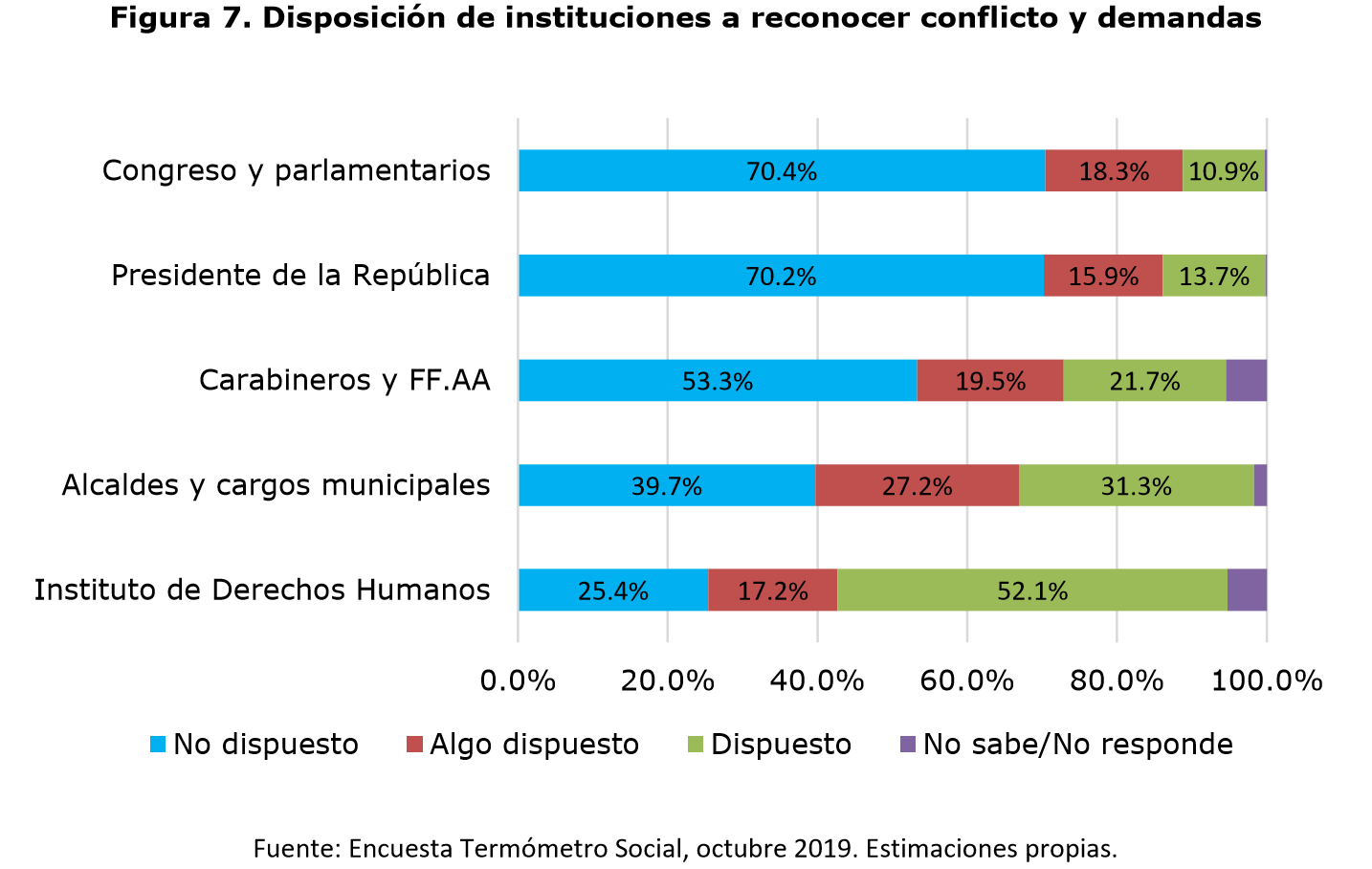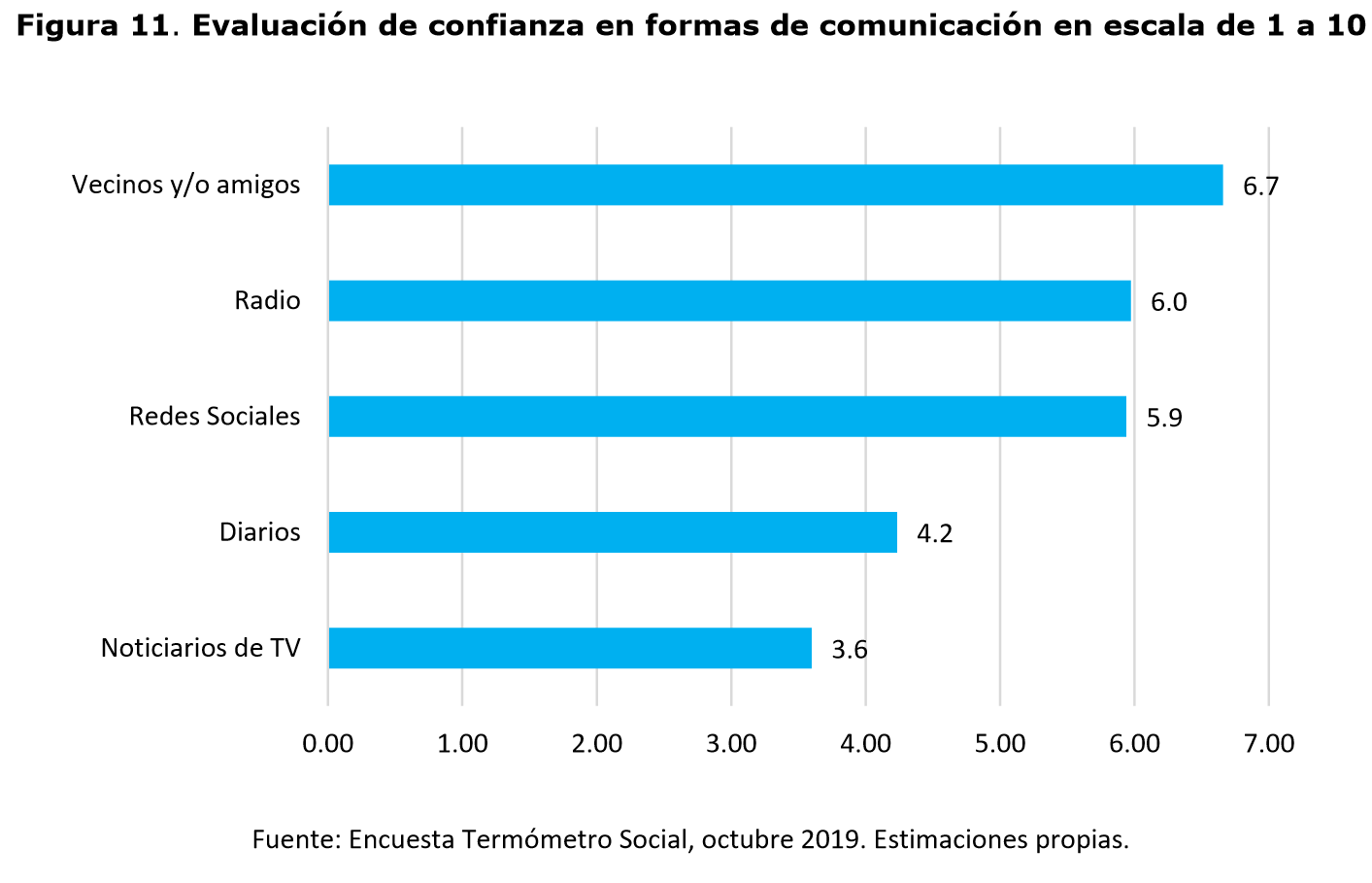More polling on the 2019 Chilean protests came out over the weekend; in addition to the weekly bulletin from Cadem, the Millennium Nucleus in Social Development (DESOC; a Chilean research center, funded by the government) released their own “Social Thermometer” regarding the present situation. Although methodologies and specific questions differ slightly, both studies are in remarkable agreement with each other, and show widespread support for the current demonstrations and the desire for profound institutional change within Chile.
My summary follows.
With respect to the protests, 85% approve of the “social mobilization” (DESOC) and 72% wish for the mobilizations and marches to continue (Cadem). Of the latter, the majority of almost all demographics—gender, age, socioeconomic background, and political orientation—wish for the mobilizations to continue. The exception is the political right, but even then almost 40% of respondents identifying as politically right-wing believe the demonstrations should continue (Cadem).
The most important issues identified by respondents are pensions, health care, and constitutional reform. Other important issues include education, labor reform, tax reform, and inequality.
The vast majority want a new constitution (DESOC - 80%; Cadem - 87%). There is broad support for a constituent assembly (DESOC - 76%; Cadem - 46% constituent assembly only, 27% a mixed constituent assembly and congressional action).
Moreso than inequality, justice is the most frequently mentioned word in terms of both what defines the current social movement, as well as the demands of said movement.
I feel sufficiently supported by data to say now: this is a tremendous movement with its roots across the entirety of Chilean society. This is not a partisan movement. You don’t get 80% of the population calling for a new constitution without support from all over the political spectrum. Everyone—rich, poor, left, right, old, young—recognize the necessity of change.
Ignore them at your own peril.
Some, but not all, of the figures follow, with my (extremely unofficial) translations.

